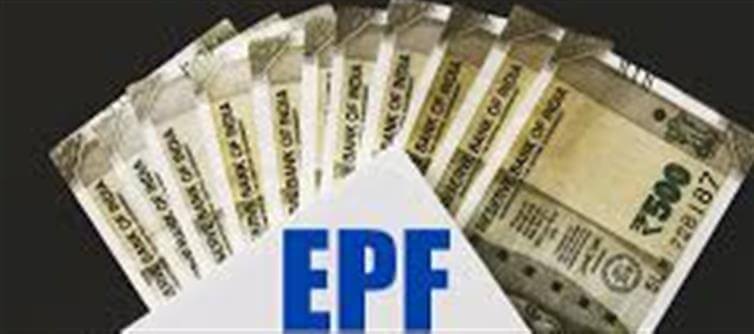
 EPFO Rules: Left Job at 40 and Didn't Withdraw PF Money? Here's What You Need to Know About Interest
EPFO Rules: Left Job at 40 and Didn't Withdraw PF Money? Here's What You Need to Know About Interest

If you’ve left your job at the age of 40 and didn’t withdraw your Provident Fund (PF) balance, you might be wondering if you’ll continue to earn interest on it. After all, the Employees' Provident Fund Organization (EPFO) offers a solid interest rate of 8.25% (for 2025), which is higher than many other secure investment options available today.
Here's a detailed explanation of whether you can still earn interest on your dormant PF account:
1. Can You Earn Interest After Leaving the Job?
Yes, you can continue to earn interest on your EPF balance even after leaving your job, as long as you don’t withdraw or transfer the money. The EPFO rules allow the balance in your PF account to earn interest for up to 3 years after leaving your job, even if you're not contributing to it anymore.
What Happens After 3 Years?
Once the 3-year period ends, the interest on your EPF account will stop accruing. This means that after 3 years of inactivity, your account will become dormant. However, it’s important to note that your money will still remain in the account.
2. What Happens to Your PF Account If You Don’t Withdraw or Transfer It?
When you leave your job and don’t transfer or withdraw the PF money, your account remains active for up to 3 years. Here's how things work:
· Interest Accrual: The interest is calculated at the prevailing EPF rate (currently 8.25% for 2025) and credited to your account every year.
· Dormant Status: After 3 years of inactivity (no contributions), your account will become dormant, and it will stop earning interest. However, the principal amount in your PF account will remain intact.
· No Withdrawal Penalty: There’s no penalty for not withdrawing your PF balance. In fact, many people leave their EPF accounts untouched and continue to let the money accumulate interest for a few years.
3. What Happens to the Interest After 3 Years?
After your PF account becomes dormant (after 3 years of inactivity), it will not earn any more interest. However, the principal balance will remain intact, and you can still choose to withdraw the money at any time, though you won't be earning interest on it after the dormancy period.
4. How to Keep Your PF Account Active?
If you don’t want your account to become dormant and you want to continue earning interest, here’s what you can do:
· Transfer the PF Balance: If you change jobs, you can transfer your PF balance to your new employer's account. This ensures that your PF continues to earn interest without any interruptions.
· Withdraw the Money: If you're planning to withdraw your PF balance, make sure to do so before the 3-year period is up to avoid the account becoming dormant.
5. EPF Interest Rate: How Much Will You Earn?
The government has set the EPF interest rate at 8.25% for 2025. This rate is compounded annually, and the interest is credited to your account at the end of each financial year (March 31st).
· Example: If you have ₹1,00,000 in your EPF account, at an interest rate of 8.25%, you would earn ₹8,250 in a year, making the balance ₹1,08,250 by the end of the year.
6. What If You Don’t Transfer or Withdraw Your PF?
If you leave your job and do not transfer or withdraw your EPF balance, your account will continue to earn interest for the next 3 years. After that, the interest stops, but the principal stays in the account. You can still access your money at any point, but no further interest will be credited once the account is dormant.
7. Should You Withdraw or Leave the PF Balance Intact?
· Benefits of Leaving It Intact: Leaving your PF balance untouched allows you to continue benefiting from the interest rate offered by EPFO, which is higher than most other traditional savings accounts or fixed deposits.
· Drawback: After 3 years, if you forget about the account or don’t take action, you will stop earning interest.
8. Conclusion:
If you left your job at 40 and did not withdraw your Provident Fund (PF) balance, you will continue to earn interest on it for up to 3 years. After that, interest accrual will stop, and the account will become dormant, but you can still access the principal balance. It's a good idea to either withdraw or transfer the amount to keep the account active and continue to earn interest.
Make sure you stay aware of the 3-year limit to avoid losing the benefits of this secure and high-interest investment.
Disclaimer:
The views and opinions expressed in this article are those of the author and do not necessarily reflect the official policy or position of any agency, organization, employer, or company. All information provided is for general informational purposes only. While every effort has been made to ensure accuracy, we make no representations or warranties of any kind, express or implied, about the completeness, reliability, or suitability of the information contained herein. Readers are advised to verify facts and seek professional advice where necessary. Any reliance placed on such information is strictly at the reader’s own risk.
.jpg)



 click and follow Indiaherald WhatsApp channel
click and follow Indiaherald WhatsApp channel